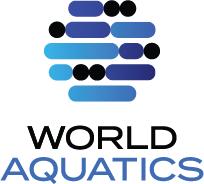World Aquatics has reached a landmark $4.6 million settlement with former athletes of the International Swimming League (ISL), bringing an end to a lengthy dispute over contractual and financial disagreements. The agreement, finalized this week, marks a significant development in the ongoing efforts to address athlete compensation and governance within the global aquatic sports community. This settlement is expected to set a precedent for future relations between sports organizations and professional swimmers worldwide.
World Aquatics Agrees to Multi-Million Dollar Settlement Addressing ISL Athletes’ Claims
World Aquatics has reached a landmark agreement to settle claims brought forth by former International Swimming League (ISL) athletes, resulting in a payment totaling $4.6 million. The settlement comes after extensive negotiations addressing grievances related to contractual disputes, athlete compensation, and event management. It marks a significant step toward resolving long-standing tensions between the organization and the professional swimming community. Both parties have agreed to confidentiality terms, ensuring a focus on future collaboration and development within the aquatic sports sector.
Key components of the settlement include:
- Compensation Distribution: Fair remuneration for affected athletes covering past seasons
- Contract Review: Commitment to transparent and athlete-friendly agreements moving forward
- Governance Improvements: Enhanced oversight to prevent similar disputes
| Settlement Aspect | Details |
|---|---|
| Total Amount | $4.6 Million |
| Affected Athletes | 120+ |
| Key Issues Resolved | Compensation & Contract Transparency |
| Implementation Timeline | Next 6 Months |
Implications for Athlete Rights and Governance in Professional Aquatics Competitions
The recent $4.6 million settlement marks a turning point in how professional aquatics organizations address the rights and representation of athletes. For years, former ISL athletes raised concerns over contractual transparency, compensation fairness, and governance oversight-issues that have now gained unprecedented attention. This settlement not only acknowledges the validity of these concerns but also sets a precedent for more robust protections. Moving forward, governing bodies are expected to incorporate clearer guidelines and enforceable regulations that prioritize athlete welfare and equitable treatment, reflecting a shift towards empowerment and accountability in professional swimming.
Key implications emerging from this agreement include:
- Improved contract transparency: Athletes will receive detailed, understandable terms to prevent exploitative clauses.
- Enhanced dispute resolution mechanisms: Mandatory mediation and arbitration channels designed to reduce lengthy legal battles.
- Strengthened athlete representation: Formal inclusion of athlete voices in governance decisions via advisory panels or voting rights.
| Aspect | Previous State | Post-Settlement Outlook |
|---|---|---|
| Contract Clarity | Opaque and complex | Clear, athlete-friendly language |
| Dispute Handling | Lengthy, costly litigation | Structured mediation/arbitration |
| Athlete Governance Role | Minimal/no involvement | Active advisory and decision roles |
| Compensation Models | Irregular and non-transparent | Standardized and fair frameworks |
Recommendations for Enhancing Transparency and Fair Compensation in Future Sporting Agreements
To foster a more ethical and sustainable environment in professional sports agreements, it is crucial to implement clear and accessible communication channels between athletes and governing bodies. This includes the timely disclosure of contract terms, remuneration details, and dispute resolution procedures. Ensuring athletes have access to independent legal counsel during contract negotiations can also help prevent misunderstandings and disputes over compensation or obligations. Additionally, sports organizations should establish standardized benchmarks for pay scales based on performance, experience, and event significance, thereby reducing ambiguity and fostering trust.
Transparency can be further strengthened by adopting third-party audits and public reporting of financial dealings related to athlete compensation. Incorporating athlete representation on decision-making panels will also provide an essential perspective to address fairness concerns proactively. The following table outlines key recommendations that could serve as a foundation for future contracts within aquatic sports and beyond:
| Recommendation | Benefit | Implementation Example |
|---|---|---|
| Independent Legal Review | Protects athlete interests | Mandatory legal consultation before signing |
| Standardized Pay Scales | Ensures fair and transparent compensation | Tiered pay based on achievements and experience |
| Regular Financial Audits | Prevents mismanagement of funds | Annual third-party audit reports |
| Athlete Representation | Balances power dynamics | Seats on governing committees |
| Public Disclosure of Contracts | Builds trust with stakeholders | Publishing contract summaries online |
In Conclusion
The $4.6 million settlement marks a significant resolution between World Aquatics and the former ISL athletes, underscoring ongoing efforts to address disputes within professional swimming. As both parties move forward, the agreement highlights the importance of clear governance and fair treatment in the evolving landscape of international aquatics sports. Further developments may set precedents for future athlete relations and organizational policies worldwide.





